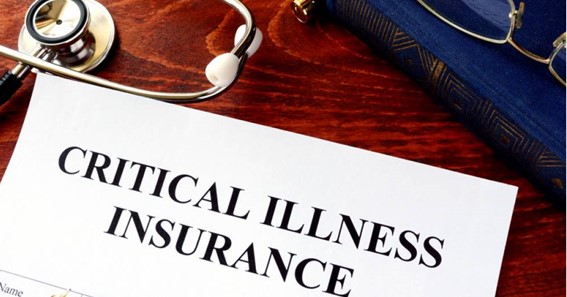Poor lifestyle choices and lack of awareness about critical illnesses often lead to life-threatening consequences. The rate of such diseases is increasing with every passing day. Along with that, the treatment costs of such diseases are also increasing steadily.
From hospitalisation expenses to fees for regular check-ups, pathology tests, post-surgery care, etc., everything cannot be covered with a mere health insurance policy. It is essential to opt for a separate critical illness insurance plan for this. Thus, before purchasing a policy, it is essential to know the difference between the two.
click here – Aircraft Loans are on The Rise as More People Wish To Fly Private
Difference between a critical illness insurance plan and a regular health insurance policy
So, is critical illness insurance worth it?
Here is a list of factors that decide how a critical illness insurance policy is different from regular health insurance plans to help you understand whether or not this is the right type of coverage for you:
-
Policy period
Health insurance policies are generally availed to meet necessary medical expenses and the policy period in most cases lasts for a year. After that, you have to renew it to avail of the benefits in the following year by paying the required premium.
On the other hand, critical illness plans are usually availed for a longer period. Due to the severity of diseases associated with it, most policyholders purchase such plans for 15-20 years.
-
Premium amount and insurance coverage
The premium amount also differs depending on the plan you opt for. Remember, you have to bear a higher premium amount for regular health insurance plans as these provide coverage for a wider range of diseases. You can take the assistance of a health insurance premium calculator to check the amount in advance and plan accordingly.
In case of a critical insurance plan, you get financial coverage for only some specified diseases. This is why the premium amount remains considerably lower. Note that after getting diagnosed with a critical illness, you will receive the total amount assured in the form of a lump sum benefit.
Remember, the assured sum for a critical illness insurance cover depends on the severity of the disease and how much the diagnosis can financially affect you as a policyholder. Online insurance aggregators like Finserv MARKETS enables you to find a critical illness policy that will cater to all your needs.
-
Benefit model
The regular health insurance policy covers expenses related to all medical conditions, except car accident cases. This primarily benefits you, the policyholder, for the expenses incurred during hospitalisation, check-ups, etc.
However, in case of a critical illness cover, both you and your family benefit from it. With the lump sum that you will receive after diagnosis, you can utilise it to meet all the necessary financial requirements.
click here – Auto Expenses to Consider When Car Shopping
-
Waiting period
As per the terms and conditions of a health insurance policy, you need to submit medical records and bills in order to claim the coverage amount. The waiting period usually varies from one lender to another; however, it generally remains between 30 and 90 days.
On the other hand, you receive a lump sum amount right after the diagnosis with a critical illness insurance plan. The process is comparatively quicker, which prevents you from taking up any additional financial burden while struggling due to such a critical health condition.
-
Survival period
Another point you need to keep in mind here is the survival period when comparing between a regular health insurance plan and a critical illness one. In case of the former, there are no such clauses, whereas, for the latter, a policyholder has to survive at least 30 days following the diagnosis.
To conclude, you should choose between a critical illness insurance plan and a regular health insurance plan depending on the medical condition. However, since you cannot predict medical emergencies in advance, it is always advisable to have a potent health insurance policy that will offer adequate financial coverage ensuring proper treatment.
